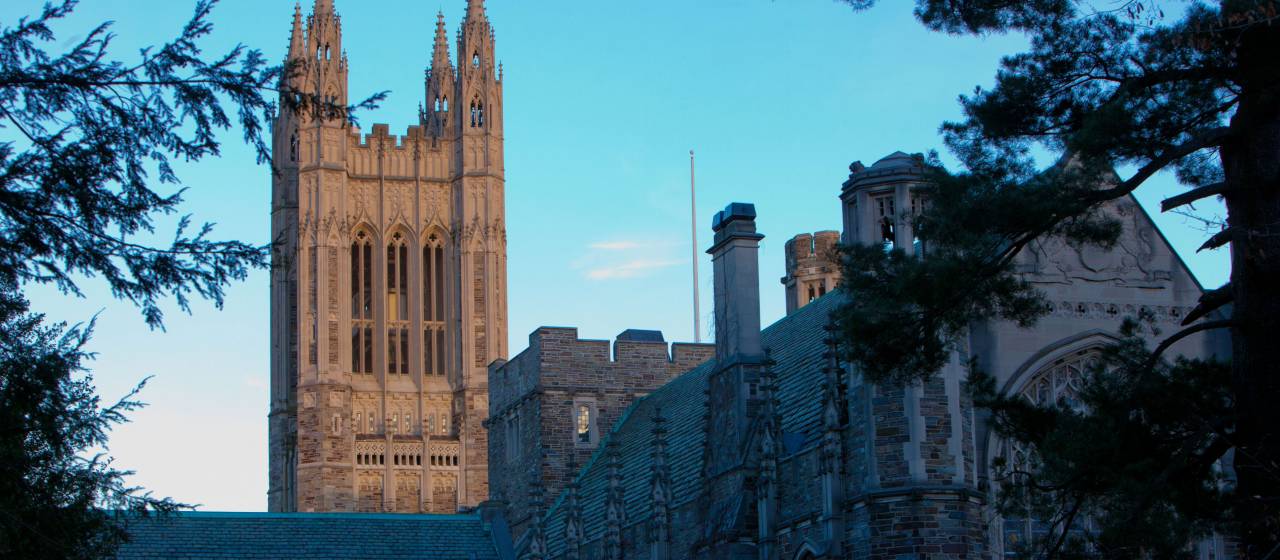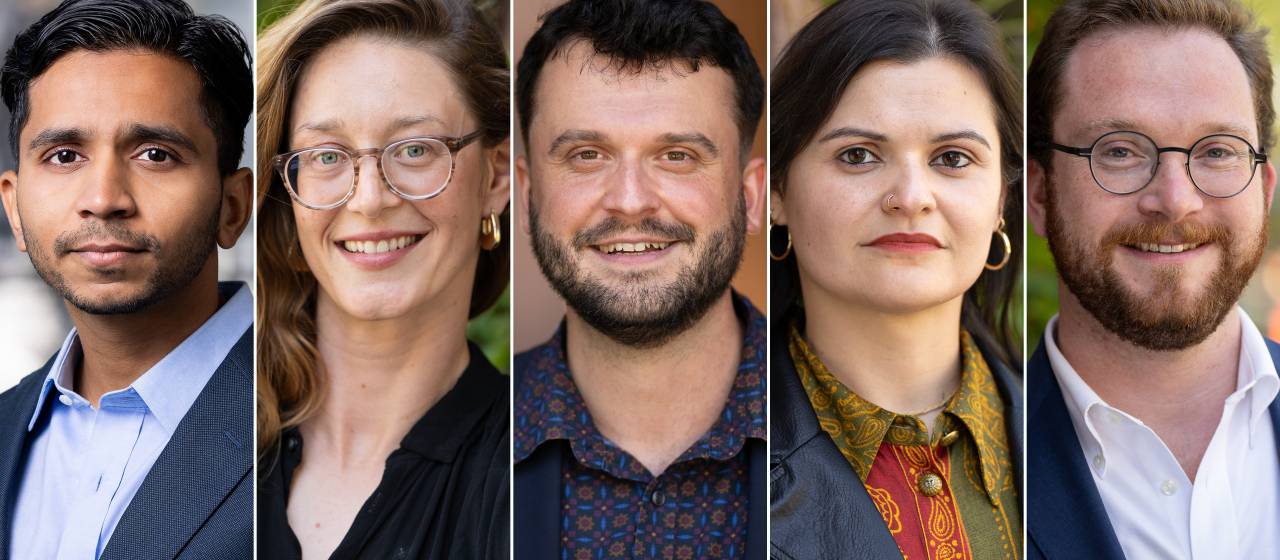Michael Skinnider wins 2025 Packard Foundation Fellowship
Michael Skinnider, an assistant professor in the Lewis-Sigler Institute for Integrative Genomics (LSI) and an assistant member of the Ludwig Institute for Cancer Research Princeton Branch, has been awarded a 2025 Packard Fellowship for Science and Engineering.
The fellowships honor “the nation’s most promising early-career scientists and engineers,” according to the David and Lucile Packard Foundation. This year’s cohort includes 20 fellows, who will each receive $875,000 over five years to pursue blue-sky research. Princeton graduate alumni Maggie Hall Miller and Darcy McRose and former postdoc Charlotte Chan are also 2025 Packard Fellows.
“It’s really an honor to receive this,” said Skinnider, whose work uses artificial intelligence to identify chemical structures in our bodies known as “metabolites” and discover how they influence human health. “Many of the previous winners are people I’ve looked up to for many years.”
Skinnider said that the unrestricted nature of the fellowship will enable his team to “test the most exciting and novel hypotheses that we come up with.”
Packard fellowships are among the nation’s largest and most flexible nongovernmental fellowships. Since they were launched in 1988, the Packard Foundation has awarded more than half a billion dollars to 735 scientists and engineers from 55 universities, according to the foundation.
“David Packard believed that science was the cornerstone of America’s progress. He invested in science not only because it drives innovation, but because it is a public good that strengthens our society and our shared future,” said Nancy Lindborg, Packard Foundation president and CEO, in a press release. “These visionary Packard Fellows are pushing the boundaries of knowledge, and their bold ideas will become tomorrow’s real-world solutions.”
The metabolites that Skinnider studies are small and largely unknown molecules in the human body. Skinnider and his group are developing AI technologies to identify these chemical structures and link them to human diseases, including cancer.
“Much of the chemistry inside our bodies remains uncharted,” his Packard award announcement noted. “Skinnider’s work seeks to enable the discovery of these as-of-yet unknown small molecules (or metabolites) in high throughput. To this end, his laboratory develops and applies computational approaches that tightly integrate biochemical experiments with artificial intelligence to comprehensively map the mammalian metabolome.”
Skinnider said that he loves “the thrill of discovery” when he experimentally validates “some new biological phenomenon or mechanism” that he first predicted computationally.
“I also really like the puzzle-solving aspect of so much of what we do,” he said. “You have all these disparate pieces of analytical data, and you’re trying to piece them together and figure out, ‘What is this metabolite that we think is so interesting but cannot actually identify?’”
Skinnider came to Princeton in 2023. He earned his undergraduate degree from McMaster University and his M.D./Ph.D. from the University of British Columbia. He also spent time as a visiting Ph.D. student at the École Polytechnique Fédérale de Lausanne.
His previous honors include the 2024 Director’s Early Independence Award from the National Institutes of Health (NIH) and the 2023 Young Explorer Award from the journal Science and the NOMIS foundation, among others. He was also included in the 2020 Forbes 30 under 30 list and the 2024 cohort of the “Talented 12” early career researchers by Chemical & Engineering News.
Alumni and former postdoc fellows
Maggie Hall Miller, a 2020 Ph.D. graduate in mathematics, is now an assistant professor at the University of Texas-Austin. Miller's work explores “the limits of what strange behavior we can observe in 4-dimensional space,” according to her award citation.
Darcy McRose, a 2018 Ph.D. graduate in geosciences, is now the Thomas D. and Virginia W. Cabot Career Development Assistant Professor in the Department of Civil and Environmental Engineering at the Massachusetts Institute of Technology. "The McRose lab studies native functions of antibiotics — from shaping beneficial microbial communities at plant roots to soil fertility and pathogen suppression — that support ecosystems, agriculture, and human prosperity,” her citation notes.
Charlotte Chan, who was a postdoctoral fellow in mathematics with Christopher Skinner, is now an assistant professor at the University of Michigan. “Representation theory provides a systematic framework for understanding symmetry, in both quantitative and qualitative terms,” according to her citation. "Chan's work explores arithmetic phenomena through this lens by exhibiting its deep interactions with polynomials.”
Latest Princeton News
- A ‘town square for the arts and humanities’: The new Princeton University Art Museum shares opening details
- The ‘Many Minds, Many Stripes’ conference celebrating Graduate School alumni is underway on campus
- Society of Fellows in the Liberal Arts welcomes new scholars
- Princeton alumni Nabarun Dasgupta '00 and Sébastien Philippe *18 win MacArthur 'genius' grants
- Venture Forward gifts name multiple spaces within the new Princeton University Art Museum
- Venture Forward gifts name Wilmerding Pavilion and Anschutz Galleries in Princeton University Art Museum













